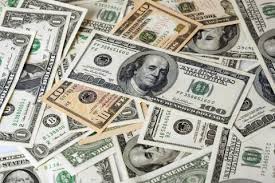PCCW Finds Buyer Acceptable To Beijing
Richard Li Tzar-kai will step down as chairman of PCCW, Hong Kong's largest telecommunications company, later this year after he agreed to sell most of his holdings to former Citigroup banker Francis Leung Pak- to in a deal worth HK$9.16 billion. Li's 75 percent-owned Pacific Century Regional Developments will sell its entire 23 percent stake in PCCW to Leung in a transaction that will make the former Citigroup banker the largest shareholder in PCCW.
Li will retain a 3 percent stake he holds privately in PCCW following the sale. Leung's acquisition is priced at HK$6 per share, which represents an 8.1 percent premium to PCCW's Friday closing share price of HK$5.55. While Leung has been a succesfful financial player since the heady days at Peregrine, Leung is not worth THAT much that he can buy the stake all by himself - watch this space for an array of private equity groups in his team.
Leung, who has relinquished all his duties at Citigroup, said he had been considering a departure from investment banking for some time. "The opportunity to acquire the PCCW stake has come at just the right time," said Leung, a business associate of Li's tycoon father, Cheung Kong (Holdings) chairman Li Ka-shing. The sale followed offers last month from Australia's Macquarie Bank and US-controlled TPG Newbridge to acquire PCCW's main telecom and media assets for between HK$57 billion and HK$60 billion.
However, both those would-be suitors were unable to secure the backing of state-owned China Netcom Group, PCCW's second largest shareholder, which paid US$1 billion (HK$7.8 billion), or HK$5.90 a share, for a 20 percent stake in the Hong Kong company 18 months ago. Leung's offer, which values PCCW at HK$40.4 billion, is much lower than the offers by either Macquarie or Newbridge, and is structured as a simple equity acquisition, rather than as a purchase of PCCW assets. This deal's structure gives it a greater chance of succeeding than the Macquarie and Newbridge offers. It is much more straightforward and less cumbersome. Richard Li said before Leung's bid was accepted by Singapore-based PCRD that two other "local consortiums" tabled rival bids for PCCW assets. Hong Kong media reported last week that the central government was behind attempts to form counter offers to the bids by Macquarie and Newbridge in an aggressive attempt to preserve domestic control of what was seen as strategically important assets for the country. It is believed that the elder Li, Hong Kong's wealthiest individual, was among local businessmen courted by Beijing to mount counter offers for PCCW. For all we know, Leung could be fronting for Li Ka Shing. It would look a bit questionable and suspicious if Li Ka Shing was to bid for the stake from his son!!??
The PCCW stake sale to Leung, known as "the godfather of the red chips" for his role in bringing some of the mainland's largest state-owned companies to the Hong Kong stock market in the 1990s while he was a banker at BNP Paribas, is likely to reassure Beijing, although it remains unclear whether he will succeed where Richard Li had failed in growing PCCW's business in the mainland. According to the fixed-carrier license held by PCCW-HKT Telephone, it has to operate, maintain and provide a good, efficient and continuous service in a manner satisfactory to the authority.
PCCW chairman Richard Li Tzar-kai has promised to pay HK$1.38 billion privately in a special cash payment to minority shareholders as an expression of gratitude for their support over the past six years, since the merger with Hong Kong Telecom in 2000. The payment will not apply to PCCW's new controlling shareholder - financier Francis Leung Pak-to - China Netcom Group or Li's remaining 3 percent stake in the company. Minority shareholders will receive a cash payment of between 33 and 38 HK cents per share. The size of payments will depend on how many new shares are issued and will be made to those who are on the register at a date to be announced.
After the special payment, Li may still pocket HK$7.78 billion from the sale.
skip to main |
skip to sidebar















tips, tricks, business, news, information, services, business, SEO, internet, websites, blogs, business, news, health, facebook, twitter, automotive, online marketing, unique, funny, zodiac, sport
Blog Archive
-
▼
2006
(308)
-
▼
July
(32)
- Malaysia's SC Cracking The Right WhipThe many com...
- Fed's Rate Hike Over?Finally, Something That's Fla...
- Landmarks' RNAV & Sungei Wang REITThis is not an a...
- Top Buys For 2006 #8 - LandmarksWhile Tebrau is sw...
- Where Do You Go To, My Lovely?Ten Bucks For Those ...
- The Private Equity Buyout EffectHere Come The B.S....
- AMD's Deal Forces Intel's HandChips Ahoy!PC chipma...
- Stumbling Blocks To FDIs Into MalaysiaForeign inve...
- Diminishing Flower PowerIRIS Has Left The Building...
- August - Time To Go awayI mentioned that although ...
- Global Political GeneralisationsIsrael / Lebanon -...
- KLSE Trading NotesWelcome Relief On IrisIris has b...
- Most Expensive Apts In ShanghaiEnough Already, No ...
- Rosneft To Begin TradingBut Seriously, Should Peop...
- AIM's Losing CredibilityLondon's AIM has been an a...
- World Is Getting Smaller 4M&A Deals That Scares Yo...
- ICBC To Launch World's Biggest IPO SoonChina's la...
- Funds Flowing Into Private Equity ExcessiveThere h...
- Biggest Foreign Fund Manager In ChinaGood To KnowW...
- Bad News BearsReal Bears Or Scarecrows??Well, ther...
- Don't Worry, Be Happy!Wealthy Does Not Equate Cont...
- Heeeerrrreeeee's ..... The Jeyeratnams!Singapore's...
- Qatari Pipeline Across Saudi ArabiaShouldn't Someb...
- PCCW Finds Buyer Acceptable To BeijingRichard Li T...
- Warren Buffett BuffetedYou'll Never Get To Heaven ...
- Rejuvenation Led By Bank Of China's IPOBank of Chi...
- China New Property CurbsBeijing will soon issue ru...
- Update On Tebrau TeguhWell, I wish I was that infl...
- No Capital Gains Tax For PaulsonIs Paulson Friends...
- Dinner Anyone?Duan Yongping To Brush Up Table Mann...
- World Is Getting Smaller 3M&A Deals Shaping Our Wo...
- Top Buys For 2006 #7 - Tebrau TeguhJohor PlayFollo...
-
▼
July
(32)
No comments:
Post a Comment